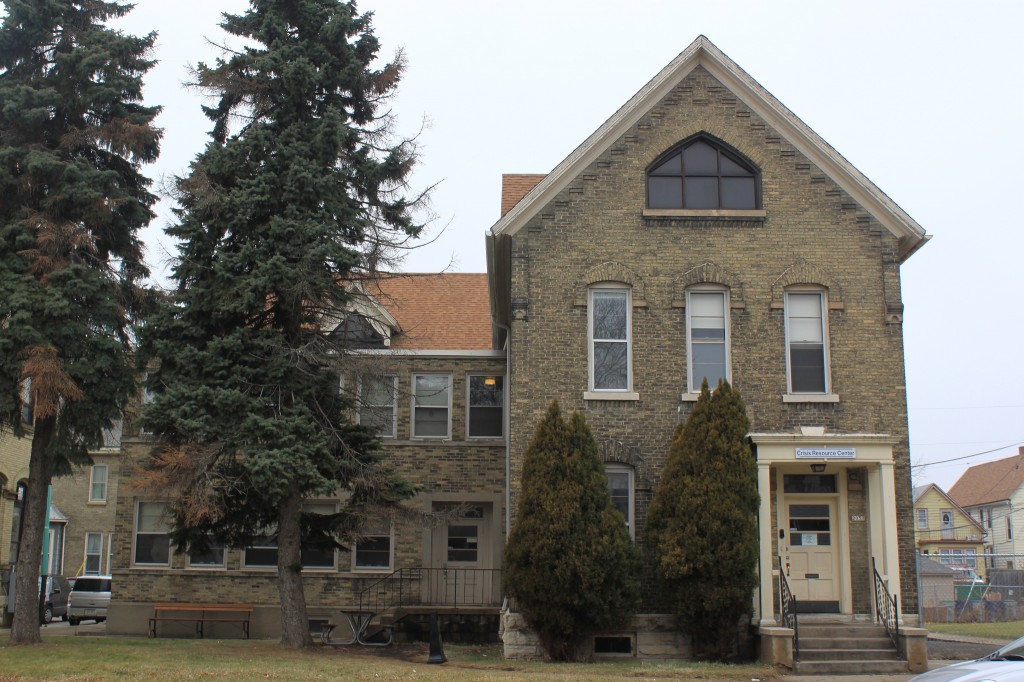County Mental Health Board’s Slow Start Prompts Questions
Volunteer board and emphasis on community-based care has worked in other cities but going slow here.

The Crisis Resource Center at 2057 S. 14th St. is part of a new model for delivering community-based mental health care. (Photo by Matthew Wisla)
Observers are raising questions about the Milwaukee County Mental Health Board and its plans for restructuring mental health care throughout the area. Formed in the spring, the board has yet to begin formal discussions on how it will lead the transformation to a decentralized health care system focused on community-based facilities.
According to board member Mary Neubauer, the board was initially faced with budget and organizational issues that required its attention and is now ready to make progress on its main mission. Chairperson Kimberly Walker said in an email that the board has discussed priorities that it will “flesh out” at its Dec.18 meeting.
“Once the board identifies priorities and goals, we will work in collaboration with the administration to see that strategic plans are developed and implemented,” Walker wrote.
The 13-member board operates without a dedicated staff, raising uncertainty about how it will carry out its responsibilities. “Board members have a hunger for data and information but that raises questions about how the board will function without anyone on staff to gather the information,” said Rob Henken, director of the Public Policy Forum in Milwaukee.
Questions also remain about how the board will manage the makeover of the mental health care system. “No one knows yet what level of oversight the board will choose for itself,” Henken said. “Will it be like a traditional board of directors that sets an agenda, or will it be more administrative and focus on day-to-day details?”
Neubauer said that some level of support staff is “most definitely needed” to gather data and provide analysis for the board to make decisions. Once armed with the information it needs, she believes, the board can lead the mental health care transformation.
“We need information to base the decisions we will make about how we will govern,” Neubauer said. “We are not here to do day-to-day management.”
Added Barbara Beckert, Milwaukee director of Disability Rights Wisconsin, “One of the concerns we had from the beginning was who will be supporting the board,” she said. “It is very important to have an independent staff that the board can direct in an analytical role. But to date that has not been available.”
The board has the ability to hire its own independent staff and assign responsibilities, according to Beckert. Until now, the county has proved some administrative support and information gathering.
The board was created by Wisconsin state law on April 8, and began holding meetings during the summer. It was established to create and manage a new, innovative system that would be based on community-based programs. Other cities around the country have succeeded in improving metal health care delivery using this approach, according to mental health experts.
Compared to Milwaukee’s previous model of centralized control under the County Board with treatment delivered in large institutional settings, establishing resources in communities increases efficiency, along with the quality of care and quality of life for patients, they note.
Neighborhood-based services are on the rise in Milwaukee County. In August, a new Crisis Resource Center opened in the Hampton Heights neighborhood at 5409 W. Villard Ave. The 12-bed facility, operated by the Milwaukee Center for Independence, provides assessment, stabilization and support services to patients in the community.
While questions continue to surround the board and its future, experts agree that it is still early. “They are working on a paradigm shift, and it’s very challenging,” Beckert said. “They are in uncharted territory.”
Dr. Ronald Diamond, retired director of the Mental Health Center of Dane County, has seen a community-based model for providing mental health care work first hand. He is a non-voting member of Milwaukee’s mental health board and is hopeful about its potential to improve mental health care.
“At the end of the day, after all of the discussion of budgets and policy and buildings and services, the real question is whether the lives of people with serious mental illness is really better,” he wrote in an email. “I am willing to put in my time on this project because I believe it can make a difference.”
This story was originally published by Milwaukee Neighborhood News Service, where you can find other stories reporting on fifteen city neighborhoods in Milwaukee.























